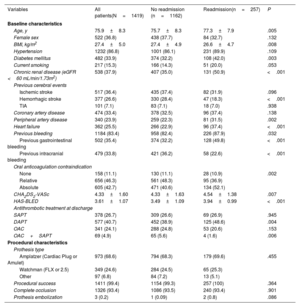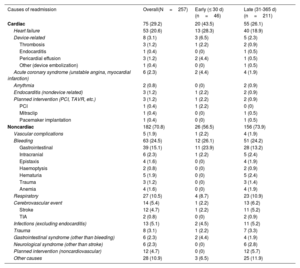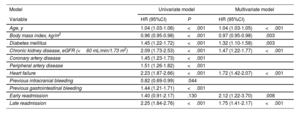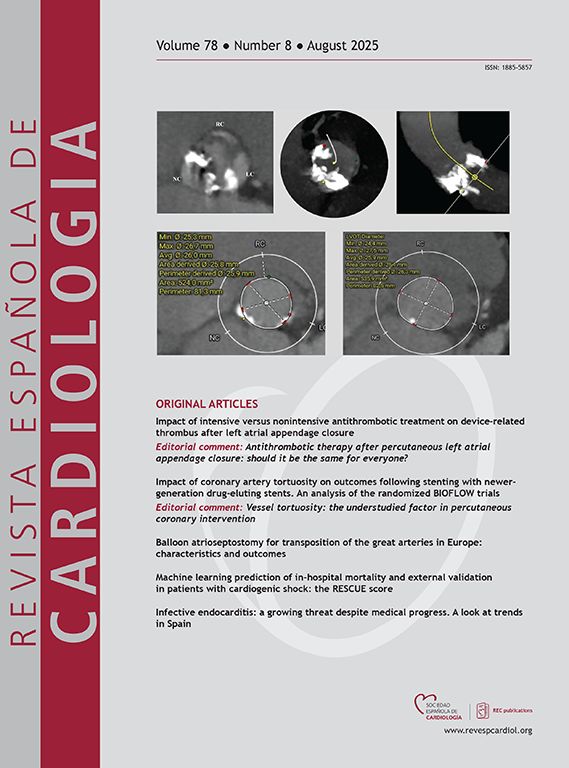
Percutaneous left atrial appendage closure (LAAC) has emerged as a nonpharmacological alternative for the prevention of thromboembolic events in patients with nonvalvular atrial fibrillation. However, there are few data on readmissions after LACC. The aim of this study was to determine the rate of early (≤ 30 days) and late (31-365 days) readmission after LAAC, and to assess the predictors and clinical impact of rehospitalization.
MethodsThis multicenter study included 1419 consecutive patients who underwent LAAC. The median follow-up was 33 [17-55] months, and follow-up was complete in all but 54 (3.8%) patients. The primary endpoint was readmissions for any cause. Logistic regression and Cox regression analysis were performed to determine the predictors of readmission and its clinical impact.
ResultsA total of 257 (18.1%) patients were readmitted within the first year after LAAC (3.2% early, 14.9% late). The most common causes of readmission were bleeding (24.5%) and heart failure (20.6%). A previous gastrointestinal bleeding event was associated with a higher risk of early readmission (OR, 2.65; 95%CI, 1.23-5.71). The factors associated with a higher risk of late readmission were a lower body mass index (HR, 0.96-95%CI, 0.93-0.99), diabetes (HR, 1.38-95%CI, 1.02-1.86), chronic kidney disease (HR, 1.60; 95%CI, 1.21-2.13), and previous heart failure (HR, 1.69; 95%CI, 1.26-2.27). Both early (HR, 2.12-95%CI, 1.22-3.70) and late (HR, 1.75; 95%CI, 1.41-2.17) readmissions were associated with a higher risk of 2-year mortality.
ConclusionsReadmissions within the first year after LAAC were common, mainly related to bleeding and heart failure events, and associated with patients’ comorbidity burden. Readmission after LAAC confered a higher risk of mortality during the first 2 years after the procedure.
Keywords
Identify yourself
Not yet a subscriber to the journal?
Purchase access to the article
By purchasing the article, the PDF of the same can be downloaded
Price: 19,34 €
Phone for incidents
Monday to Friday from 9am to 6pm (GMT+1) except for the months of July and August, which will be from 9am to 3pm










